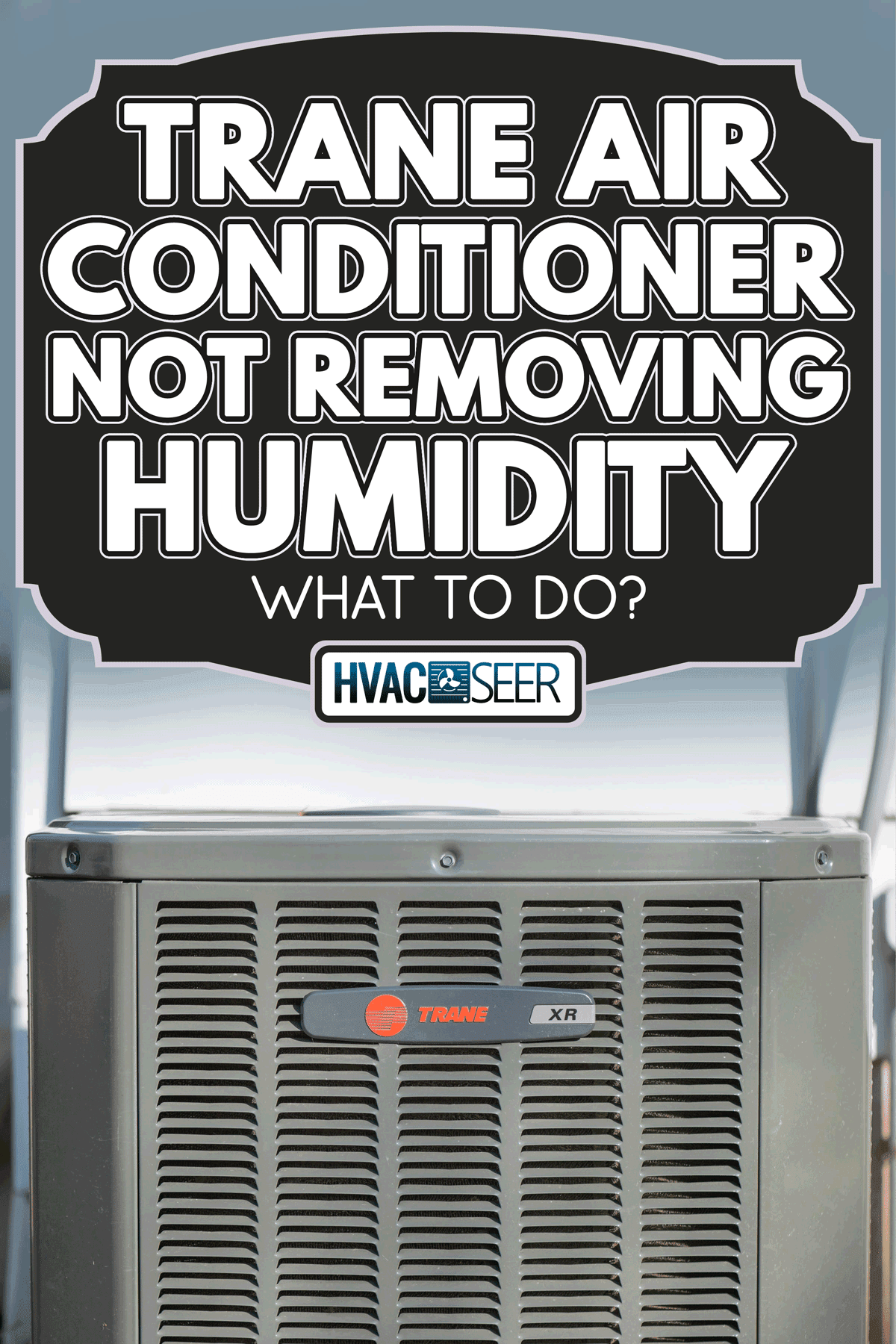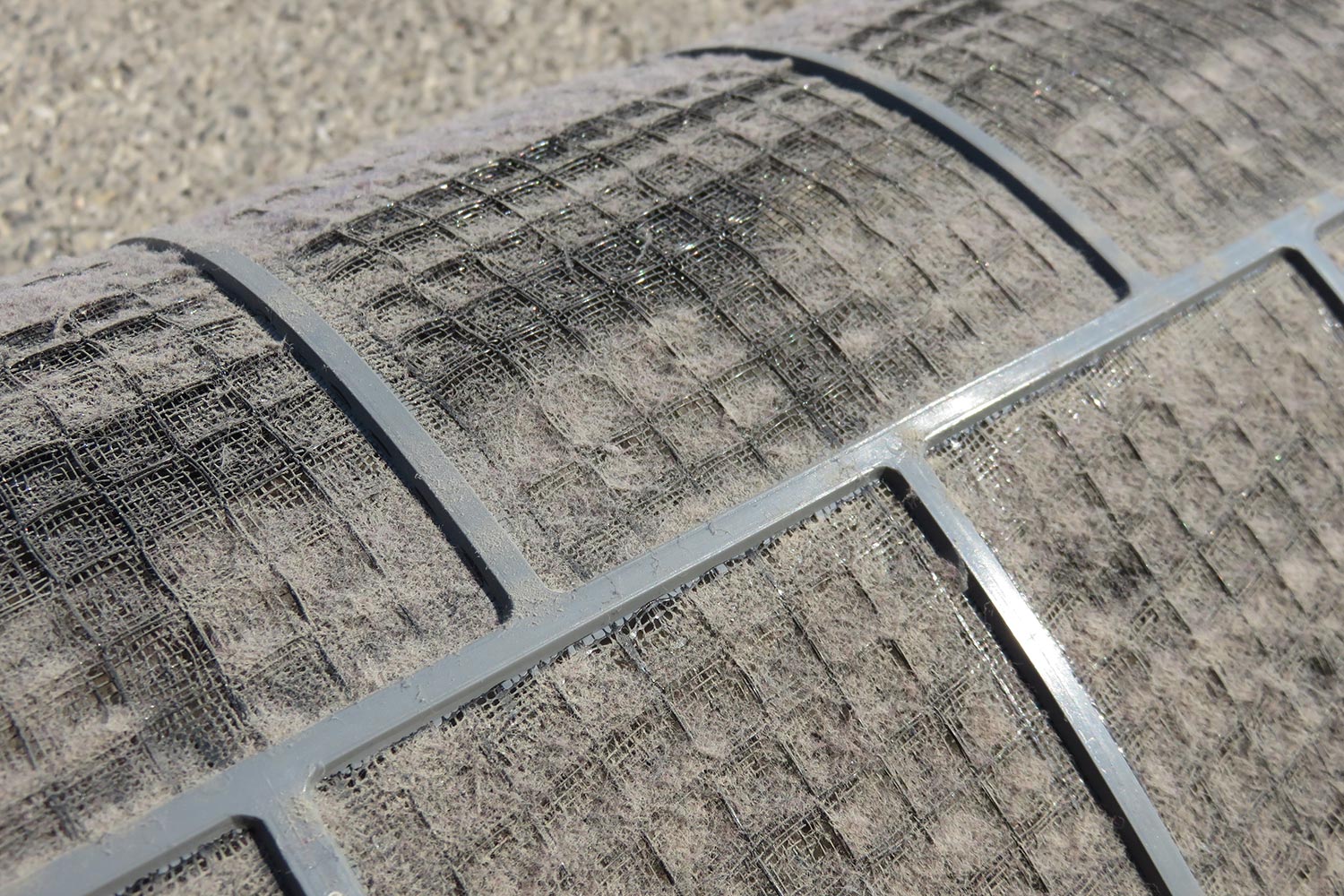Is the high humidity level in your room making you feel uncomfortable even if your Trane AC is on? Are you wondering what you can do to ease your discomfort? We asked our HVAC experts what you can do about this situation, and here's what they have to say.
If your Trane AC isn't removing the high humidity level in your house, you need to:
- Clean the air filters.
- Have the refrigerant charged to the correct level.
- Adjust the fan speed.
- Install or adjust the thermal expansion valve (TXV).
Keep on reading to know more about what you can do so that your AC can remove the heat and moisture inside your home. We'll also share with you other factors that can cause your AC to have a hard time pulling out the humidity in your house. This article will also answer how high humidity affects your AC performance. Let's get started!

Why is my AC increasing the humidity in my house?
The US Environmental Protection Agency recommends that we maintain our indoor relative humidity levels between 30% and 50% for our utmost comfort, relief, and promotion of good health.
Some may have the notion that only low moisture levels inside the house would make you feel irritated and trigger allergies. The truth is, when the humidity is below or above the recommended levels, residents experience discomfort, adverse health effects, and other consequences within their surroundings.

High humidity inside the house is bad for your wood furniture, walls, floors, and insulation as it could lead to the growth of fungi, mold, and mildew on their surfaces and cause damage like wood rotting, staining, and warping.
These unwelcome organisms can also make you sick. They can trigger asthma attacks, allergies, and other respiratory problems.
This is why it's important to be able to control the humidity level inside your house. Some humidifiers and dehumidifiers can help you control the moisture level in each room. Air conditioners also help in reducing humidity in your house.
Your AC unit can control the humidity level by absorbing the heat and moisture in your indoor air. Thus, this appliance can reduce the humidity and make your home more comfortable and healthier.
But if your Trane air conditioner isn't doing this for you, this indicates that there is something wrong. These are the things that you can look into so that your AC can remove the high humidity in your house.
Check These Parts For Trane AC to Efficiently Remove Humidity
1. Air filters

The dirt that accumulates on your filters can make its way into the interior components of your AC, which can affect performance. For example, dirt can stick to the evaporator coils, and they won't be able to perform their job. They'll find it hard to remove the heat and humidity in the room.
When the dirt has reached these coils, you'll need a professional to clean your unit. But you can prevent this from happening by cleaning your air filters regularly according to the manufacturer's instructions.
2. Refrigerant charge
Your AC has to have enough refrigerant charge for it to work properly. There can be instances when the refrigerant gas leaks out. You might notice an oily residue, ice formation on the coils, or your AC isn't running efficiently, which results in higher electricity bills.
Once the refrigerant is depleted, it won't be able to cool the air. You would need to consult an HVAC professional to restore the refrigerant to the correct level.
3. Fan speed
Your AC fan is responsible for pulling hot air out of the room so that you can enjoy the cooler air. You can adjust the AC fan speed to control the rate at which it helps to cool your indoor air. Most ACs have four fan speed settings:
- low,
- medium,
- high,
- and auto.
If you're using the auto setting, then you don't have to worry about this because your AC will automatically adjust the fan speed according to your desired temperature. But if you're manually controlling the speed, check if it is enough to cool the air and consequently remove the humidity in your surroundings.
4. Thermal Expansion Valve or TXV
The thermal expansion valve or TXV is connected to the evaporator. It controls the amount of refrigerant that is released in response to the cooling load. It optimizes the use of your evaporator coil so that more heat and moisture are removed from the air.
You can have a thermal expansion valve installed by a professional, or if your unit already has one, a technician can adjust it for you if it's not functioning properly. This will allow your AC to run efficiently as it maximizes the evaporator coil's capacity.
These are the main components that you should check on your Trane air conditioner if it's not removing the high humidity level in the room.
Why is my air conditioner not pulling out humidity?
There are times when there's really nothing wrong with your AC and yet the air inside your house still feels muggy. This can be caused by the following issues:
Overcrowding

When there are more people present inside the house, there are more warm bodies. This warmth, together with the people's perspiration, can cause the indoor humidity level to be higher than usual.
Consequently, your AC cannot deal with the sudden increase in people. You will have to change your AC settings so that it can accommodate the number of people in the room if it just happens occasionally.
However, if this happens all the time, your AC might not be the right size for your family. You need to consult an HVAC professional regarding this.
Outdoor humidity
It could also be that the humidity level outside your home is just too much for your air conditioner to bear. For example, this could happen when there's a thunderstorm during the summer. There's increased humidity in the air and it feels muggy and sticky.
Again, with the right adjustments in your AC settings, you can reach a comfortable temperature inside your house.
Cooking indoors

If someone's cooking in the kitchen and your cooking area isn't properly ventilated, there will be increased moisture in the air. The water that evaporates and the hot air from the stove make your indoor air stuffy. Make sure that you open the windows or turn on your exhaust fan when you're cooking so that the air can circulate properly.
Appliances
Some of the appliances that we use at home also contribute to the high humidity level. Examples are appliances that use combustion, such as stoves, and those that generate moisture, such as dryers.
The use of humidifiers and steam radiators also increases the moisture level in the room. Even showering can increase the humidity in the air when your bathroom doesn't have sufficient ventilation.
These are just some of the reasons why your house still feels humid despite having a functional air conditioner. Make sure that you have the right HVAC for your family's needs and your house is well-ventilated to avoid problems with humidity and the unwanted consequences that it brings.
Does high humidity affect AC performance?
We've been talking about how the increased indoor humidity level makes you feel uncomfortable and affects your home. But how does it affect your air conditioner's performance?
When the humidity level increases, your AC needs to work harder to make your home cooler. Your regular AC settings aren't enough to make you feel comfortable since your home feels a lot warmer than usual.
This will cause a strain on your air conditioner since it has to work overtime to provide your desired temperature. It will hasten the wear and tear on its system.
Experts suggest the use of dehumidifiers to help your AC cope with the increased moisture in the air. Some signs that would tell you that you need this device are musty odor, foggy windows, and moist skin. Dehumidifiers will be able to pull out the moist air so that your AC won't have to work extra.
Check out this dehumidifier on Amazon.
In effect, this will help prevent damage to your unit, so it's a win-win for you. You will feel more comfortable and won't have to spend on costly AC repairs.
Final Thoughts
If your air conditioner doesn't remove the heat and moisture in your indoors, have your air filter, refrigerant charge, fan speed, and thermal expansion valve checked. Make the necessary adjustments so you'll experience relief and comfort when your air conditioner is functioning well.
For more resources about your air conditioners, you may visit the following links:
How To Turn Off Fresh Air Intake On Air Conditioner
Air Conditioner Delayed Start – Why And How To Fix

